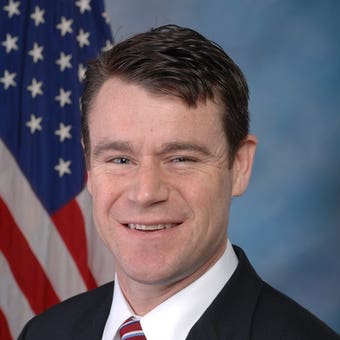Young Dylan Smith of New York honors a World War II veteran this Veterans Day
Boy scout Dylan Smith of Tarrytown, New York, honors Pearl Harbor veteran Armando "Chick" Galella in Sleepy Hollow, New York, on Friday, November 11, 2022 — Veterans Day.
We both have had the honor and privilege of serving our country in uniform, a duty we took very seriously.
We willingly raised our right hands, swearing an oath to defend the Constitution, even if that meant risking our bodies and lives. We saw our friends take the same oath, many of whom came home from deployments physically, mentally or emotionally injured. We hold true to the memory of those others who never returned.
Our own service, that of our friends and family, and that of the millions of men and women with whom we share a common bond, inspire us and others to continue fighting for this country. Where we once served in uniform, we now do it through advocacy and legislating better policies that keep America safe and our service members out of unnecessary danger.
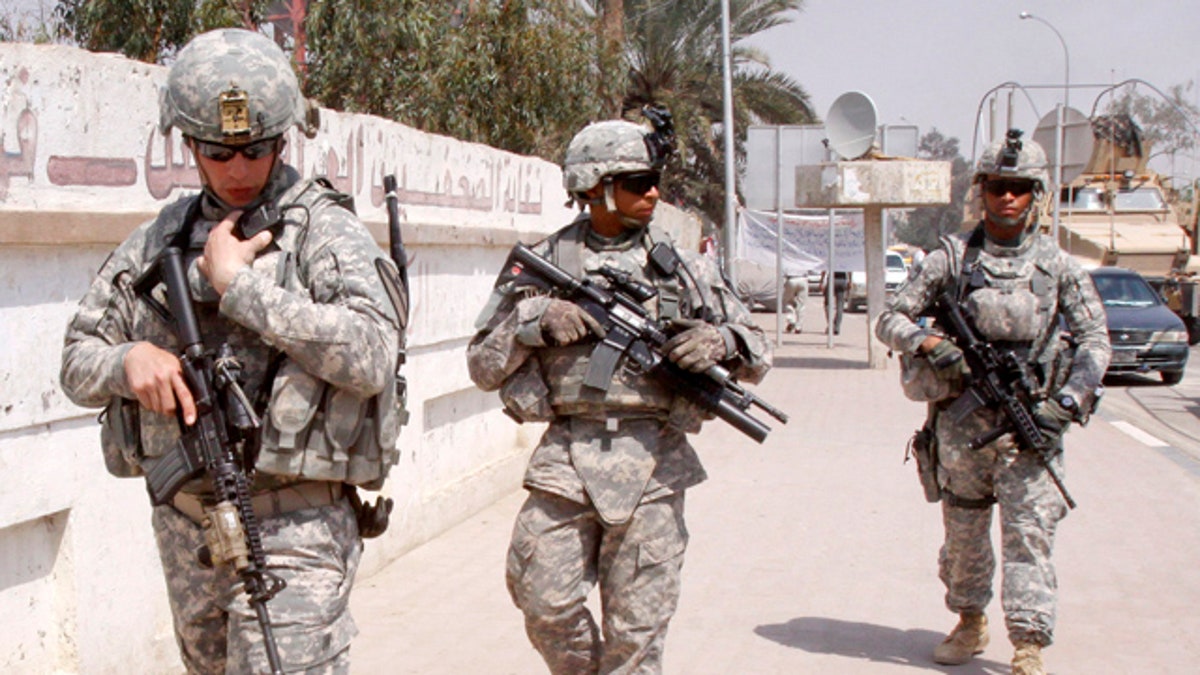
U.S. troops stand guard in Basra, Iraq, March 23, 2011. (AP)
The greatest challenge we have on that front is returning the responsibility of sending troops into combat to its rightful place – the halls of Congress.
VETERAN SUICIDES ARE A NATIONAL CRISIS, BUT THERE ARE WAYS TO HELP OUR HEROES
For the last few decades, Congress has largely ceded its authority on military action to the executive branch. By taking a back seat in this debate, members of Congress, the vast majority of whom were not in office 20 years ago, have been allowed to shirk their constitutional responsibilities for waging war.
The 1991 and 2002 Authorizations for Use of Military Force (AUMF) remain on the books – with the real possibility they will be "repurposed" to justify a rush to war or other military action – and should be debated and voted on by Congress.

A U.S. soldier walks past armored vehicles that are being readied to ship out of the Camp Victory complex that is set to close in Baghdad, Iraq, on Nov. 7, 2011. (AP Photo/Khalid Mohammed)
The 2002 AUMF Against Iraq Resolution is a prime example of an authorization that has outstayed its welcome.
This authorization was passed in the months leading up to the invasion of Iraq, giving President George W. Bush authority to use U.S. armed forces to "defend the national security of the United States against the continuing threat posed by Iraq."
HELP INSPIRE A NEW GENERATION OF HEROES BY HONORING OUR VETERANS
Now, 20 years after its original passage, the 2002 AUMF is not the sole authority for a single military operation the U.S. is conducting. The combat operations in Iraq are technically over, but troops are still in the country under a "train and equip" mission — only this time our troops are there at the invitation of our partners, the Iraqi government. Simply put, the 2002 AUMF is not being relied upon to combat al-Qaeda, ISIS, or Iranian-backed proxies, nor is it relied upon to support Kurdish forces in Syria.
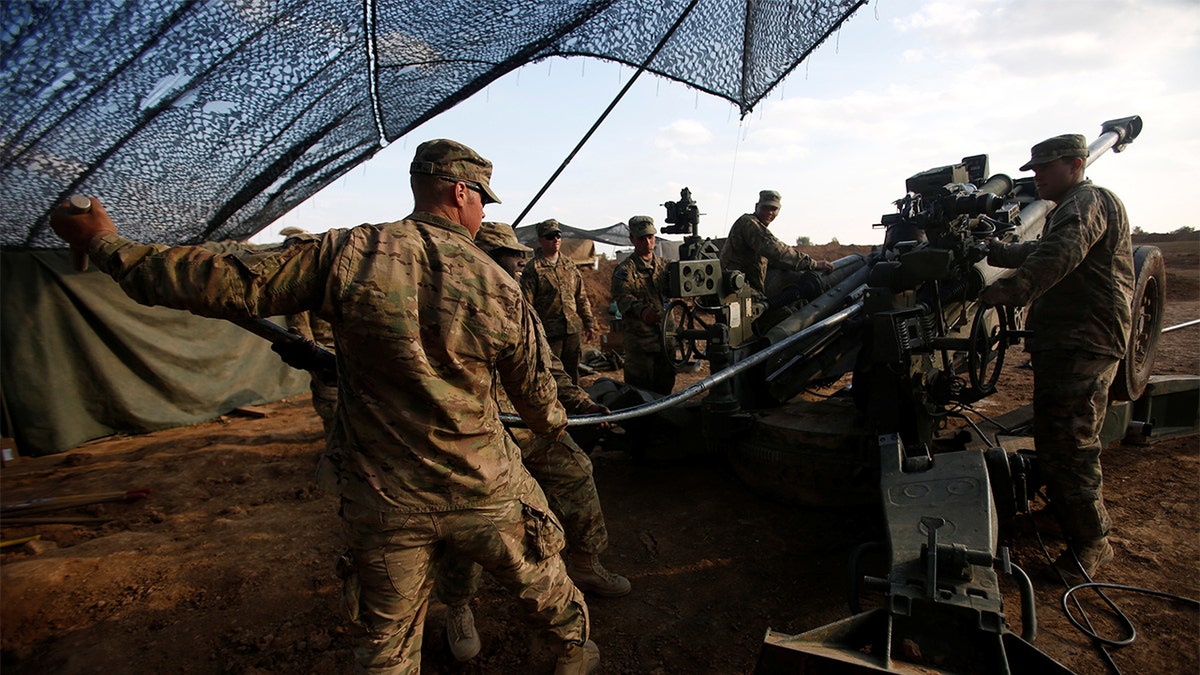
U.S. soldiers from the 2nd Brigade, 82nd Airborne Division at a military base north of Mosul, Iraq, Feb. 14, 2017. (Reuters/Khalid al Mousily)
If a legitimate threat to the U.S. did arise, Congress should debate and vote on action, or the president should use his Article II powers to repel or preemptively foil an attack if necessary.
The 2002 AUMF should not be seen as a blank check to the president and military leaders to bypass Congress and the proper process for authorizing military action.
Further, the president agrees that the 2002 AUMF is no longer necessary and supports its repeal.
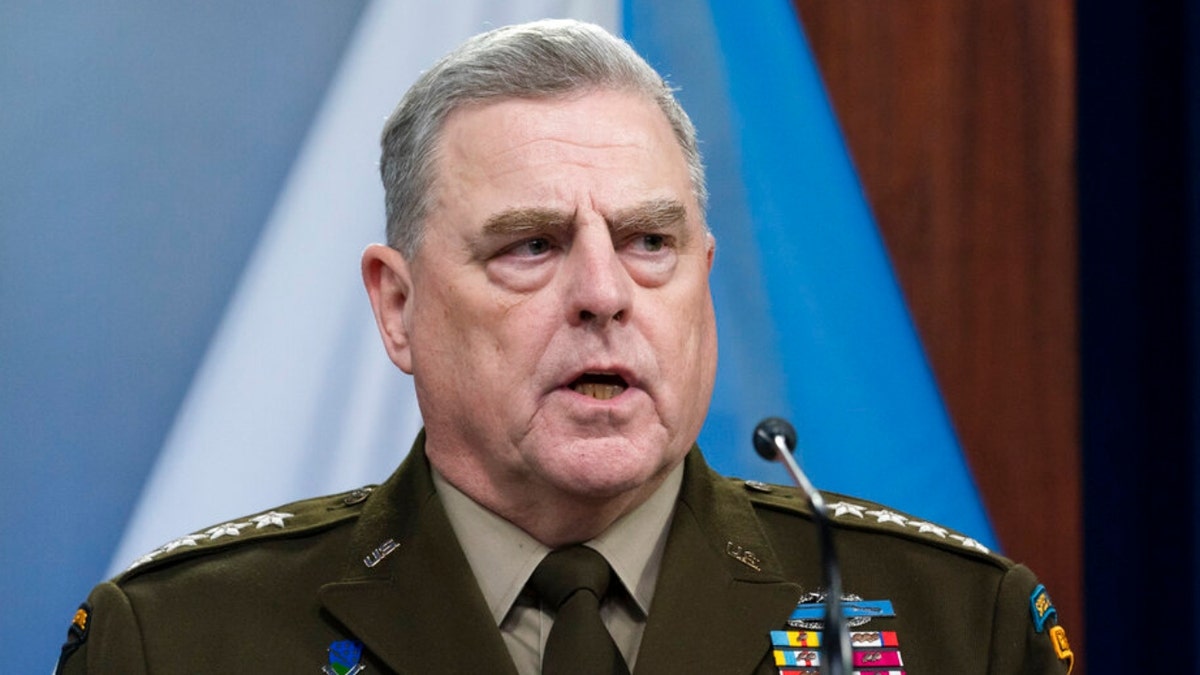
Joint Chiefs Chairman Gen. Mark Milley speaks with reporters at the Pentagon, May 23, 2022. (AP Photo/Alex Brandon)
The administration publicly supported repealing the 2002 AUMF in a June 2021 statement, followed by testimony from Chairman of the Joint Chiefs of Staff Mark Milley that repeal would not impact any ongoing U.S. operations.
CLICK HERE TO GET THE OPINION NEWSLETTER
In a refreshing show of compromise and bipartisanship, members of Congress from both parties also support repeal. In recent years, the House of Representatives and Senate Foreign Relations Committee have both passed measures to repeal the 2002 AUMF.
In the coming weeks, the Senate has a chance to finally vote to repeal this outdated and obsolete "zombie" authorization through an amendment to the National Defense Authorization Act. Senate Majority Leader Chuck Schumer, D-N.Y., has the opportunity to let the Senate take a historic vote on protecting Congress’ constitutional obligation to be accountable for the men and women we send into harm's way.
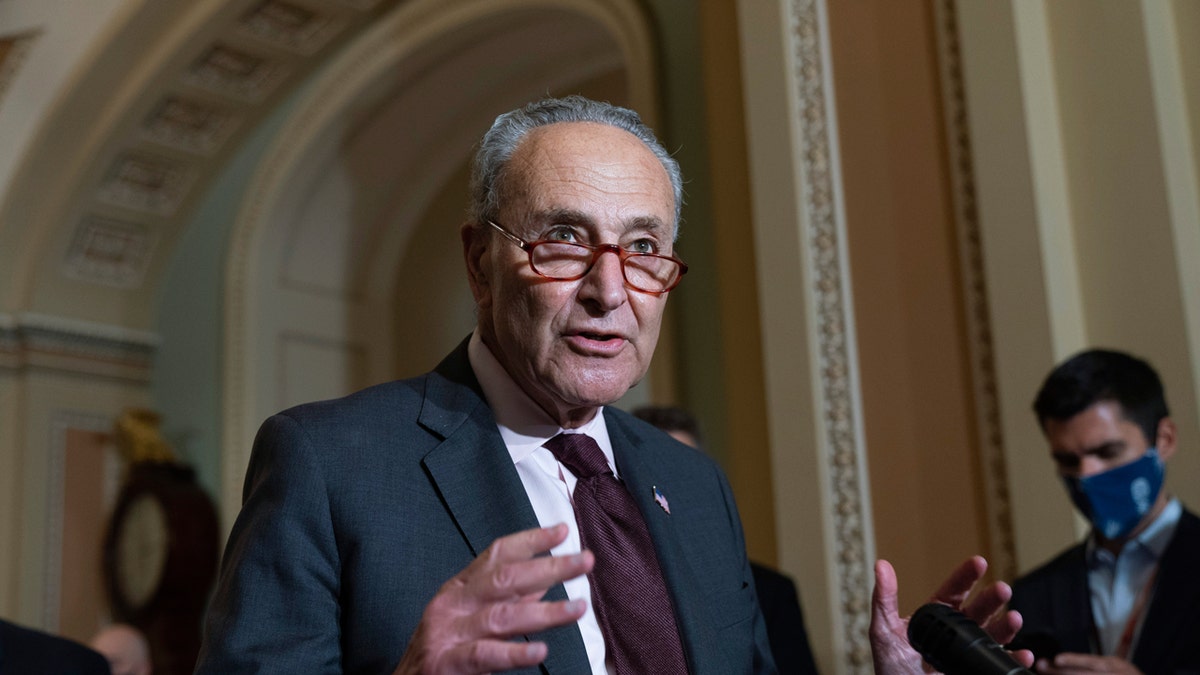
Senate Majority Leader Chuck Schumer speaks to reporters after a Democratic policy luncheon, Oct. 19, 2021, on Capitol Hill. (AP Photo/Jacquelyn Martin)
CLICK HERE TO GET THE FOX NEWS APP
As a nation, we recently celebrated Veterans Day, recognizing the men and women who put their lives on the line in defense of our country. What better way to follow that celebration than to honor their sacrifice with a more responsible and constitutional approach to the way our country wages war.
We call on Congress to come together for this common purpose to honor our service members and take back control of military action.
CLICK HERE TO READ MORE FROM SEN. TODD YOUNG
John Byrnes is deputy director at Concerned Veterans for America and a veteran of the U.S. Marine Corps and Army who served on combat deployments in Iraq and Afghanistan.








































